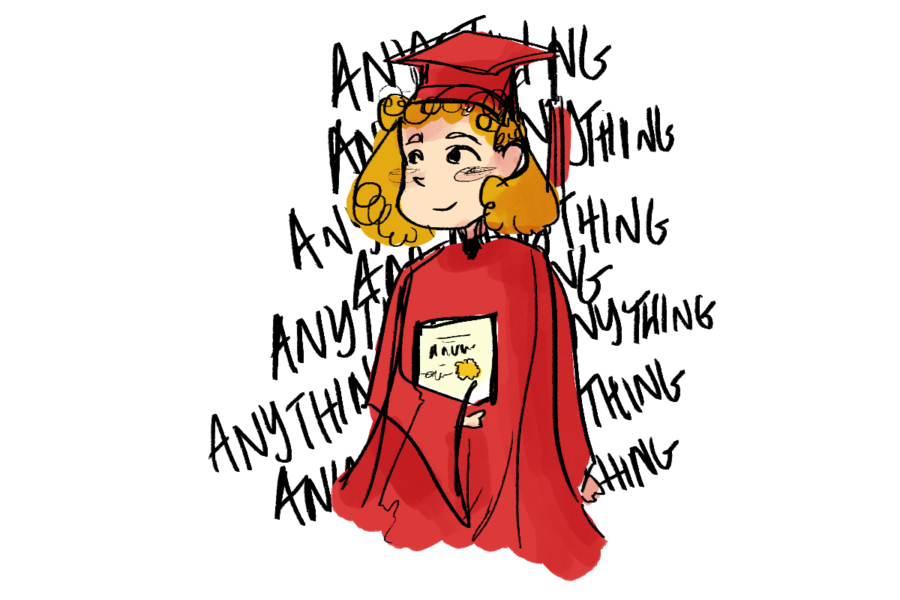Broadening our scope, considering non-traditional paths post graduation
April 11, 2018
Often, the idea of attending traditional college after graduation is drilled into high school students’ minds by parents, peers and teachers as a fixed expectation, the only respectable option.
But dropping that presumption and encouraging open mindedness would greatly benefit many students. From Standard Oil founder John D. Rockefeller to modern day billionaire Steve Jobs, several people who never graduated college have made a bigger dent in our world than many class valedictorians.
According to Time Magazine, a quarter of bachelor degree holders are working jobs for which their degree is unnecessary.
Before investing vast amounts of money and energy into a traditional higher education, students should consider whether an alternative option would be more fitting for them.
Go to trade school
Often called vocational school or technical school, trade school focuses on teaching one skill for a specific occupation, and unlike traditional college, it does not offer a broad education along with it. A chef, computer technician, construction manager or graphic designer are just a few of the many careers one can pursue after trade school.
Programs at trade school are generally completed within two years or less, unlike the traditional undergraduate education. Finishing school in two years equates to two extra years of earning and saving money.
Shorter schooling is not the only advantage of trade school. Families who are not in the ideal financial situation should note that, on average, traditional college will suck nearly four times as much money out of wallets than trade school – over $120,000 for the former and only $33,000 for the latter, according to Value Colleges.
Trade school provides hands-on job experience for each respective field, leading to increased confidence, as most high school students have not previously had jobs in their industry of choice.
Join the workforce
Many occupations do not require college degrees.
Earning income through employment instead of splurging on an education can help prevent debt. Additionally, jobs teach responsibility, an important trait for young adults to develop.
If students are feeling a loss of direction or motivation after high school, full-time employment can be a good alternative to immediately continuing their education. While employed, teens will gain career exposure, which will help them learn what they enjoy and narrow down options to the industry they wish to pursue a career.
Coppell High School’s engineering department offers classes through which students can prepare for Certified Solidworks exams, which will help them land jobs after graduation. According to CHS engineering teacher Pilar Castro-Zena, many former CHS students have found success with this option.
Take a gap year
There are endless reasons high school seniors may choose to take a gap year before transitioning to college: travel, work, research and volunteering are all common ways the year is spent.
Often, the work done during a gap year earns students much needed money to fund college expenses. Even if finances are not an issue, it would be a great time to follow a passion before diving back into school.
According to CHS counselor Ann Cinelli, for students who are disappointed from a college rejection, the year can be used to improve their standardized test scores, which may help them if they re-apply at another time.
Although some worry taking even one year off will make it difficult to return to the rigor of education, according to CNBC, 90 percent of students who take a gap year return to school the next year. In fact, gap year students have a higher chance of graduating, and earn higher GPAs.
Enter the military
Serving in the military is perhaps one of the most honorable routes one can walk, as members are serving their country and helping others. The experiences one will go through in this path of life will help form strong friendships and will also make service members learn more about themselves and who they truly are.
Joining a branch of the armed forces can help with members’ college education. According to the Tuition Assistance page of the military’s website, among other benefits, members will receive up to $4,500 annually in Tuition Assistance.
The Department of Veteran Affairs (VA) provides a multitude of other benefits, including but not limited to disability benefits, the loan guaranty program and veterans insurance.
On top of all this, training with the military will keep one’s body in excellent shape, maintaining health effectively.
Although attending traditional university is beneficial to many students, these alternative paths should also be considered, as they may transform certain students’ lives for the better.










